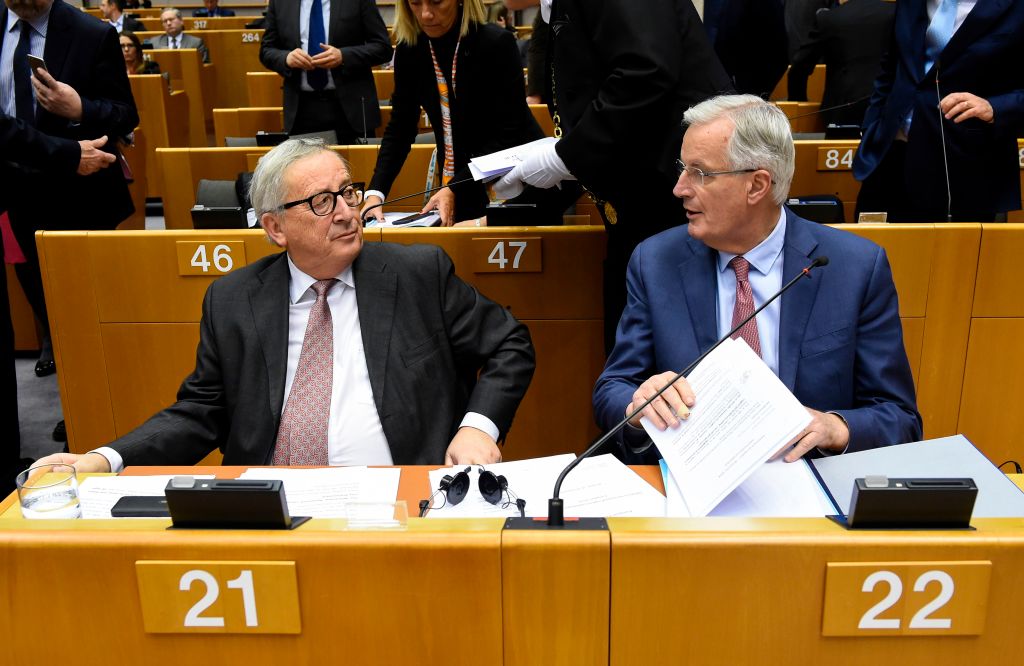Even the most fervent Brexiteer would have to admit to being impressed at the cohesion and chutzpah of the European Union negotiating team. Michel Barnier talks as if it is the UK that most needs a deal, while the rest of the EU could carry on just as well as before, or better, without one, given that it would be able to attract business and investment away from us. For the EU to concede a trade deal, therefore, would seem to be little more than an act of kindness towards a fallen friend.
As a diplomatic bluff, it is strikingly successful. But the economic reality is rather different. A free-trade deal benefits all. But if there were to be no deal, then what would happen? A report by the Halle Institute for Economic Research and the Martin Luther University of Halle–Wittenberg this week sought to explain. Its basic case is that EU exports to Britain would drop by 25 per cent, as the UK reaches further out to global suppliers. Malta and Ireland would be hit hardest. Then Belgium. Number six on its list is Germany, calculated to lose 100,000 jobs, with the greatest effects felt in the car industry. France, it adds, could lose 50,000 jobs.
Such forecasts should be treated with caution. As we have seen, the UK Treasury was woefully unable to assess the impact of the Brexit vote. But the German report highlights a basic truth: that trade is a two-way process, and both sides stand to lose from the erection of barriers and imposition of tariffs. In seeking to deny this, EU negotiators are doing their own exporters a huge disservice.
The solution to the impasse in negotiations is disarmingly simple. The insertion of an exit clause in the withdrawal agreement, allowing either party to break the deal, would be enough. This would likely be sufficient for the deal to pass in parliament. It is not an outlandish request: this basic protection is in almost every international treaty in the world, from trade to defence. Nato members, even EU members, are given the ability to walk away if they wish. Parliament is saying that any deal Theresa May signs should conform to this basic international standard. Without a break clause a contract becomes vassalage, as Jo Johnson, a Tory Remainer, has pointed out.
This would not mean ‘reopening’ the deal — it could be bolted on at the end, just as extra components were added to the EU–Canada deal. Parliament is not asking for anything that the EU has not granted in every one of its trade deals. If the EU would agree to a one-sentence amendment then this game of chicken could be drawn to a close, and businesses on both sides of the Channel would have more certainty. It’s depressing that politicians, in Brussels and in London, prefer to run down the clock, convinced that this will benefit them in the end.
The minor concession of a break clause in the backstop would still enable M. Barnier and his team to claim victory. Look, they would be able to say, we managed to extract a divorce bill of £39 billion from the UK government — something which for many months seemed uncertain. The Irish border will remain open; Europe will continue to have access to UK markets, while attracting some businesses and jobs to re-locate to Paris and Frankfurt from the City. But there is every risk that the EU will continue to mistake intransigence for strength right up until 29 March.
The only logic for the EU doing this would be in the hope that the Commons will buckle and drop its demands for an exit clause. The EU may be drawn to the prospect of winning this battle of nerves. But it would be a dangerous gamble, given how much the mood is hardening in Britain. Polls show that even in Northern Ireland, 37 per cent support no deal over Theresa May’s deal and 70 per cent of Leavers across the UK are ready to accept short-term disruption as the price of a clean Brexit. Every MP who votes on May’s deal will know they are answerable, at least in part, to these voters.
There is no doubt that it would be painful and disruptive in the short term. The pound would drop by about 10 per cent, inflation might double from 2 per cent to 4 per cent; and economic growth might grind to a halt. But it will not be an economic cataclysm. Goods will still be traded across the Channel, as they are across the Atlantic and with the Far East, trade deal or no trade deal. World Trade Organization (WTO) rules will ensure that trade continues to be conducted under the same system that governs our trade with America.
Few people in Britain — even hardened Remainers — would say that they have been impressed by the EU as an institution over the past couple of years. Michel Barnier is reputed to have said recently that he will have done his job if the terms of Britain’s departure are so poor that we are persuaded to reverse the decision to leave. But if we leave without a deal, it will show that the negotiation was an abject failure for both sides. All parliament is asking is for a one-sentence appendage to a 585-page deal. We are tantalisingly close to an agreement that would bring relief to people all over Europe. It is not too late to put them first.






Comments